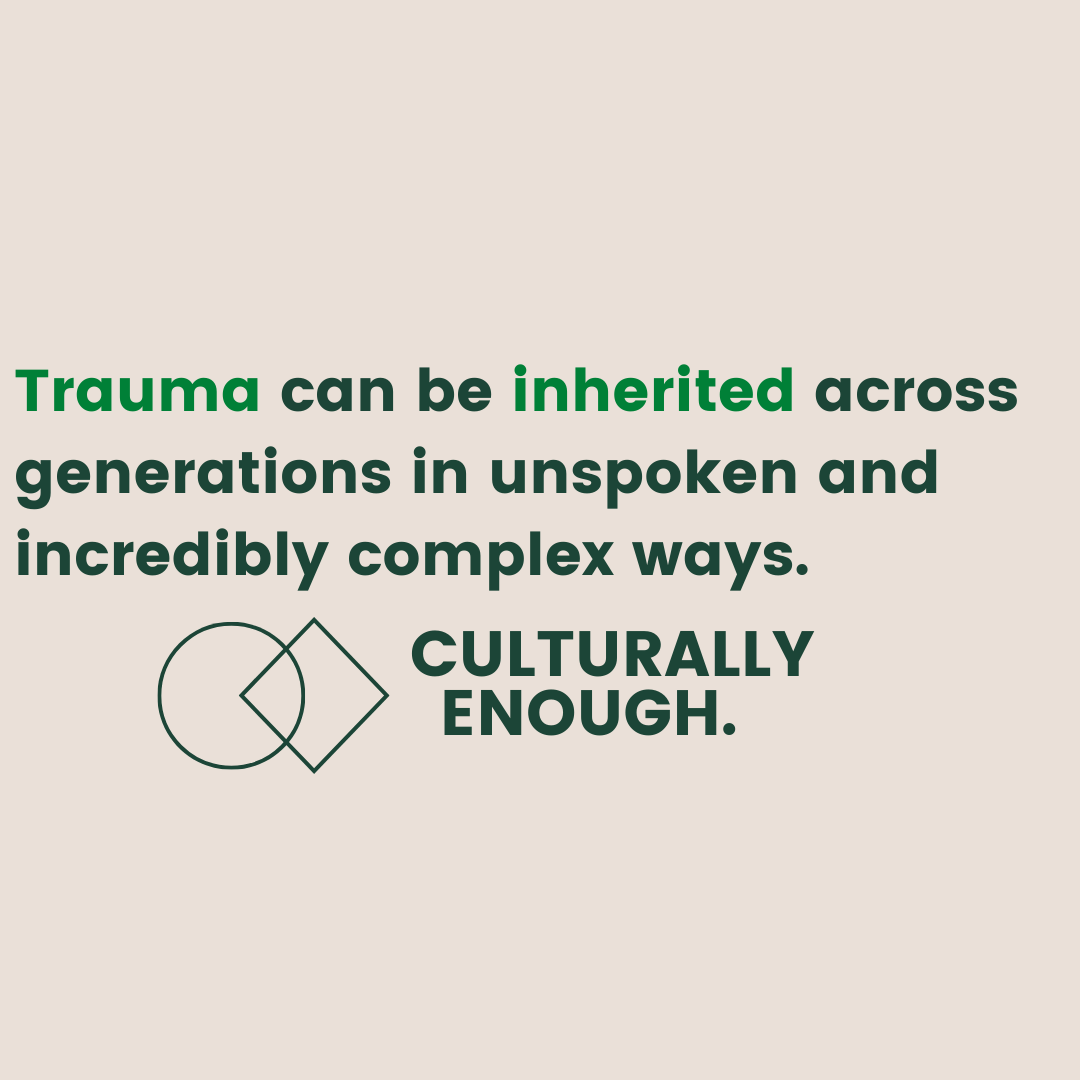Paid subscribers, don’t forget about our community event TODAY at 1pm-2pm ET. Details at the end of this post.
Last week, I defined and briefly shared — and asked you to reflect on — macro examples of intergenerational trauma.
Today, I want to discuss what this actually looks like on a micro scale, or how the trauma can be related to how oppression is experienced in our day to day lives, like patriarchal beliefs in family systems, immigration/migration experiences, workplace discrimination, microagressions, relational trauma/abuse, infidelity, divorce, and so on.
But how does this — along with the systemic or historical trauma our ancestors have experienced — actually pass itself down from one generation to another?
Here's a (simplified) case study to illustrate this: A person living through war and in survival mode (and for fear of their life) turns to alcohol to disassociate from and numb their feelings. This person has a kid. The kid grows up in a household with substance abuse and an absent parent. Through modeling they learn to utilize substances to numb their feelings and/OR they start to avoid their own emotions in other ways, masking them with anger outbursts at others. This kid gets into a relationship where they are often aggressive and has a kid. The cycle continues.
Keep reading with a 7-day free trial
Subscribe to Culturally Enough. to keep reading this post and get 7 days of free access to the full post archives.





